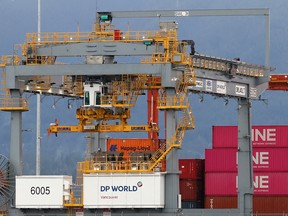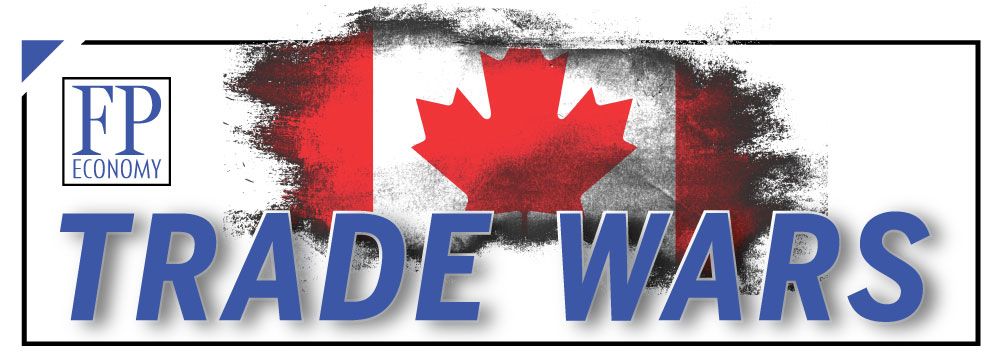88% of businesses are at least considering diverting their exports to countries without tariffs
Article content
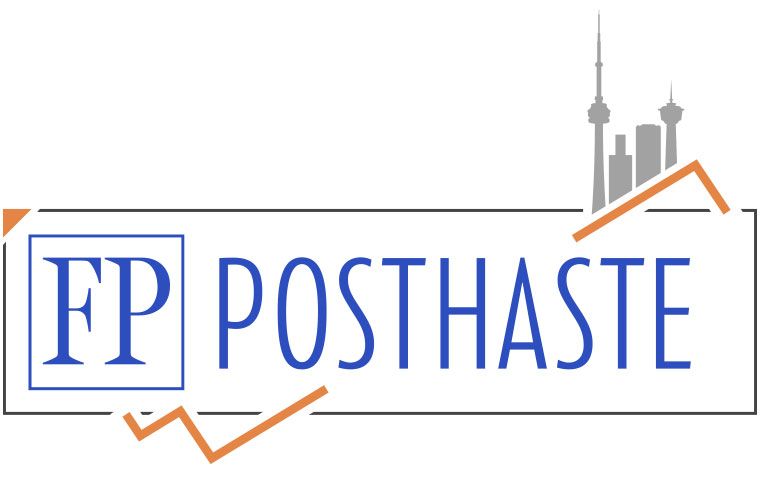
Article content
Article content
The possibility of devastating tariffs hitting Canadian exporters has most rethinking their operations in order to withstand the incoming pressures.
United States President Donald Trump had pledged to impose a 25 per cent tariff on most Canadian goods and 10 per cent on energy on Feb. 1, but a last-minute truce with Prime Minister Justin Trudeau extended the implementation date by 30 days.
Advertisement 2
Article content
Over the weekend, Trump announced he would impose a 25 per cent on all steel and aluminum imports beginning on Monday, including those from Canada and Mexico.
In response to the proposed tariffs, 88 per cent of Canadian businesses are at least considering diverting their exports to countries without tariffs, according to a recent survey by KPMG International Ltd.
The survey said most Canadian business leaders are already taking drastic action to mitigate any impact from the tariffs, with 83 per cent looking to make their supply chains more resilient by either sourcing alternative materials, revisiting contracts or implementing new technologies, among other possible solutions.
Both Canada and Mexico secured a 30-day reprieve from Trump’s tariffs, but Chinese imports have faced a 10 per cent increase since Feb. 4, which has 57 per cent of Canadian businesses looking to move production out of China, while 63 per cent say the U.S. tariffs on Chinese imports would hurt their business.
“The uncertainty caused by potential tariffs on Canadian goods and newly imposed tariffs on China has made it very difficult for Canadian companies to plan, operate and stay competitive,” Alain Sawaya, national leader of KPMG in Canada’s supply chain practice, said in a release.
Article content
Advertisement 3
Article content
“With Canada caught in the trade crosshairs of the U.S. and China, industries that depend on suppliers and customers — such as manufacturing — are especially vulnerable to increased costs, delayed shipments, and disrupted production and planning schedules. Smaller suppliers with fewer options may struggle to absorb added costs, leading to a heightened risk of insolvency.”
Dan Kelly, president of the Canadian Federation for Independent Business, acknowledged the need for sweeping changes after the U.S. agreed to pause tariffs, though he focused on government intervention.
“While we catch our breath and implement the border measures, we can’t afford to take our eyes off the many other critical changes needed to prepare for the future,” he said in a statement. “This means we need to seize the opportunity now to bring in policies that improve our investment climate, reduce taxes, slash red tape and break down internal trade barriers to ensure we are prepared no matter what external threats come our way.”
KPMG warns there are risks involved when shifting production to another country and switching third-party suppliers, so business leaders should conduct a full risk assessment before making any switches.
Advertisement 4
Article content
Sign up here to get Posthaste delivered straight to your inbox.

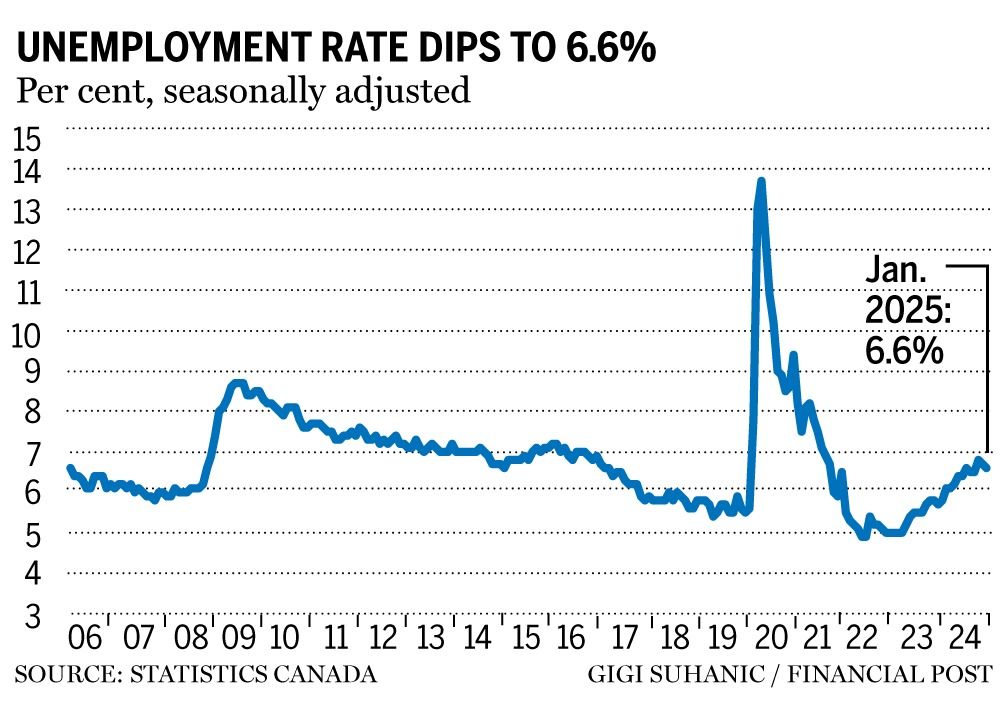
Canada’s unemployment rate fell to 6.6 per cent in January, as the economy added 76,000 jobs in the month.
The figures represent the second straight month where Canada’s unemployment rate fell, as a drop in youth unemployment drive the dip.
The average hourly wage also climbed 3.5 per cent compared to last year, though it fell four per cent month-over-month.
Read more here.

- Today’s Data: Bank of Canada market participants survey for the fourth quarter
- Earnings: McDonald’s Corp., Loews Corp.

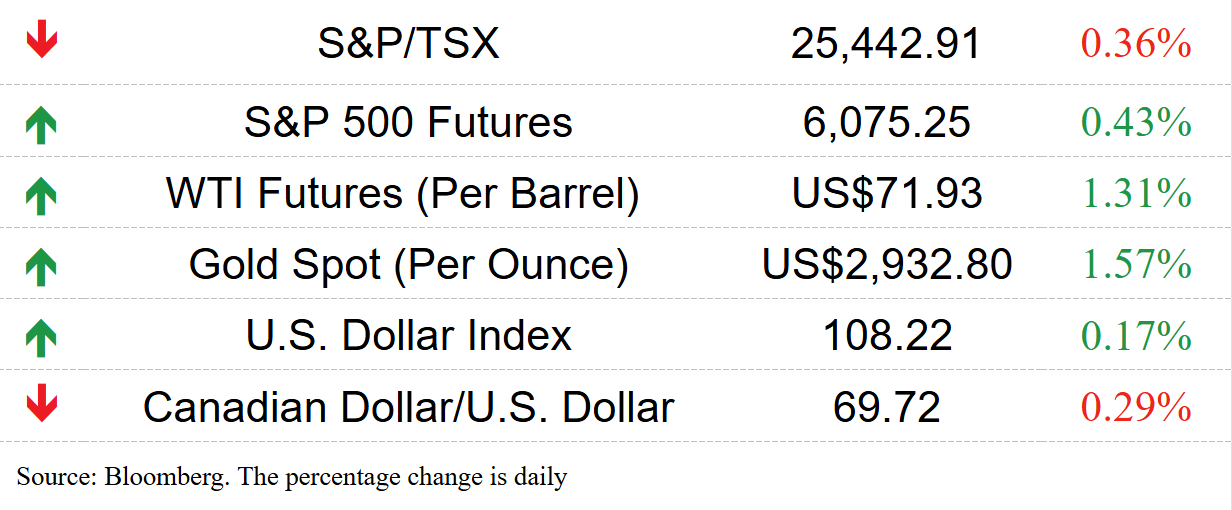
Financial Post

Recommended from Editorial
-

Realtor.ca aims to be a one-stop real estate shop
-

Canada should discuss possibility of west-east pipeline

Though tax-free savings accounts (TFSA) are a common way to generate wealth, there remains some confusion about what happens to the account when the holder of it dies. As Jamie Golombek writes, the TFSA holder has the option to name a loved one either a “successor holder” or beneficiary, each offering different options for the future of the account. Read more here.
Advertisement 5
Article content
Calling Canadian families with younger kids or teens: Whether it’s budgeting, spending, investing, paying off debt, or just paying the bills, does your family have any financial resolutions for the coming year? Let us know at wealth@postmedia.com.
McLister on mortgages
Want to learn more about mortgages? Mortgage strategist Robert McLister’s Financial Post column can help navigate the complex sector, from the latest trends to financing opportunities you won’t want to miss. Read them here
Canada is at an economic crossroads. The FP Economy: Trade Wars newsletter brings you the latest developments from the Financial Post and across the Postmedia network every weekday at 7 p.m. ET. Sign up for free here.
Financial Post on YouTube
Visit Financial Post’s YouTube channel for interviews with Canada’s leading experts in economics, housing, the energy sector and more.
Today’s Posthaste was written by Ben Cousins, with additional reporting from Financial Post staff, The Canadian Press and Bloomberg.
Have a story idea, pitch, embargoed report, or a suggestion for this newsletter? Email us at posthaste@postmedia.com.
Bookmark our website and support our journalism: Don’t miss the business news you need to know — add financialpost.com to your bookmarks and sign up for our newsletters here.
Article content
Tariffs have Canadian businesses rethinking exports
2025-02-10 13:00:05


